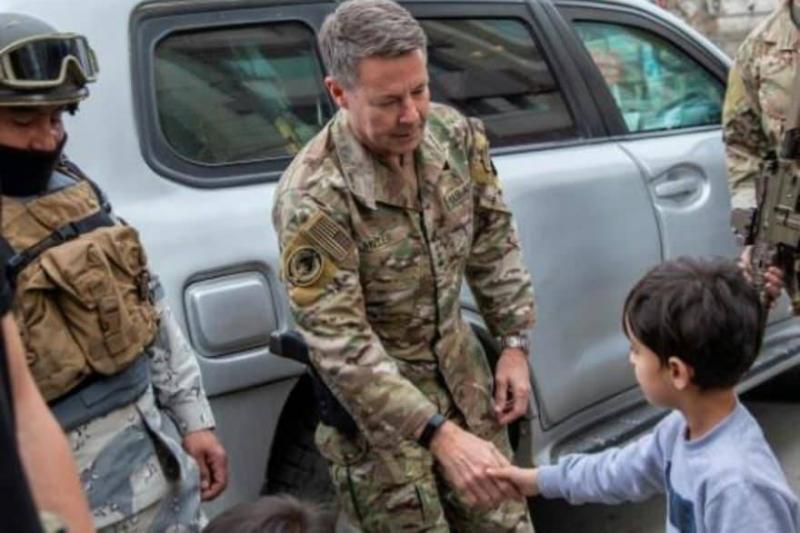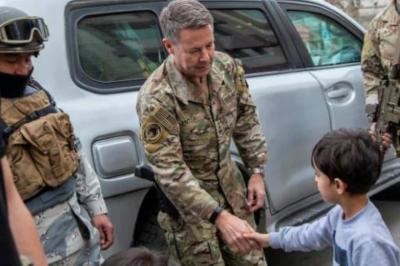The top U.S. commander in Afghanistan warned on Tuesday that airstrikes against the Taliban could occur if they continue their offensive to seize new territories across the violence-torn country, as U.S. forces complete their withdrawal. Fighting has intensified in Afghanistan since early May when the U.S. military began the final phase of its troop withdrawal, with the Taliban recently claiming to have captured over 100 of the more than 400 districts in the country.
General Scott Miller told reporters in Kabul, according to a video obtained by Agence France-Presse from U.S.-funded Radio Free Europe/Radio Liberty, "What I would like to see is not airstrikes, but for there to be no airstrikes, you need to stop all forms of violence." He added, "The best way to stop that, which I have already communicated to the Taliban, is to halt offensive operations and airstrikes," insisting that the U.S. military still possesses the firepower to conduct airstrikes against militants even as it continues to withdraw.
The remaining U.S. forces are expected to leave by the September 11 deadline announced by President Joe Biden to end the longest-running war in American history. Afghan government officials doubt the Taliban's claims of seizing new areas, as independent verification of these claims is challenging. However, experts note that one of the main reasons the Taliban has been able to capture dozens of new territories in recent weeks is due to the lack of U.S. air support for Afghan ground forces fighting in rural areas.
Miller, who will soon be replaced by another commander, acknowledged that the loss of government-controlled territories to the Taliban affects security across the country as well as in Kabul. He stated, "Because the areas in question represent key regions in relation to the security of the people and the capitals of the provinces and certainly the security of the capital." The Taliban has recently taken control of a major border crossing with Tajikistan in the north and surrounding areas of Kunduz city, effectively besieging the city. They have also surrounded almost all major cities in the country, raising concerns that they may launch a military attack to take control of Kabul once U.S. and NATO forces depart.
Miller said, "Military control is not in anyone's interest, and certainly not in the interest of the people of Afghanistan," adding that the overall security situation "is not good." He noted, "This is something that the Afghan security forces know, and they are making the necessary adjustments as we move forward." The Afghan Interior Ministry announced on Tuesday that it has established a "rapid response force" of 4,000 personnel, led by retired army generals, to fight alongside regular security forces against the Taliban.




